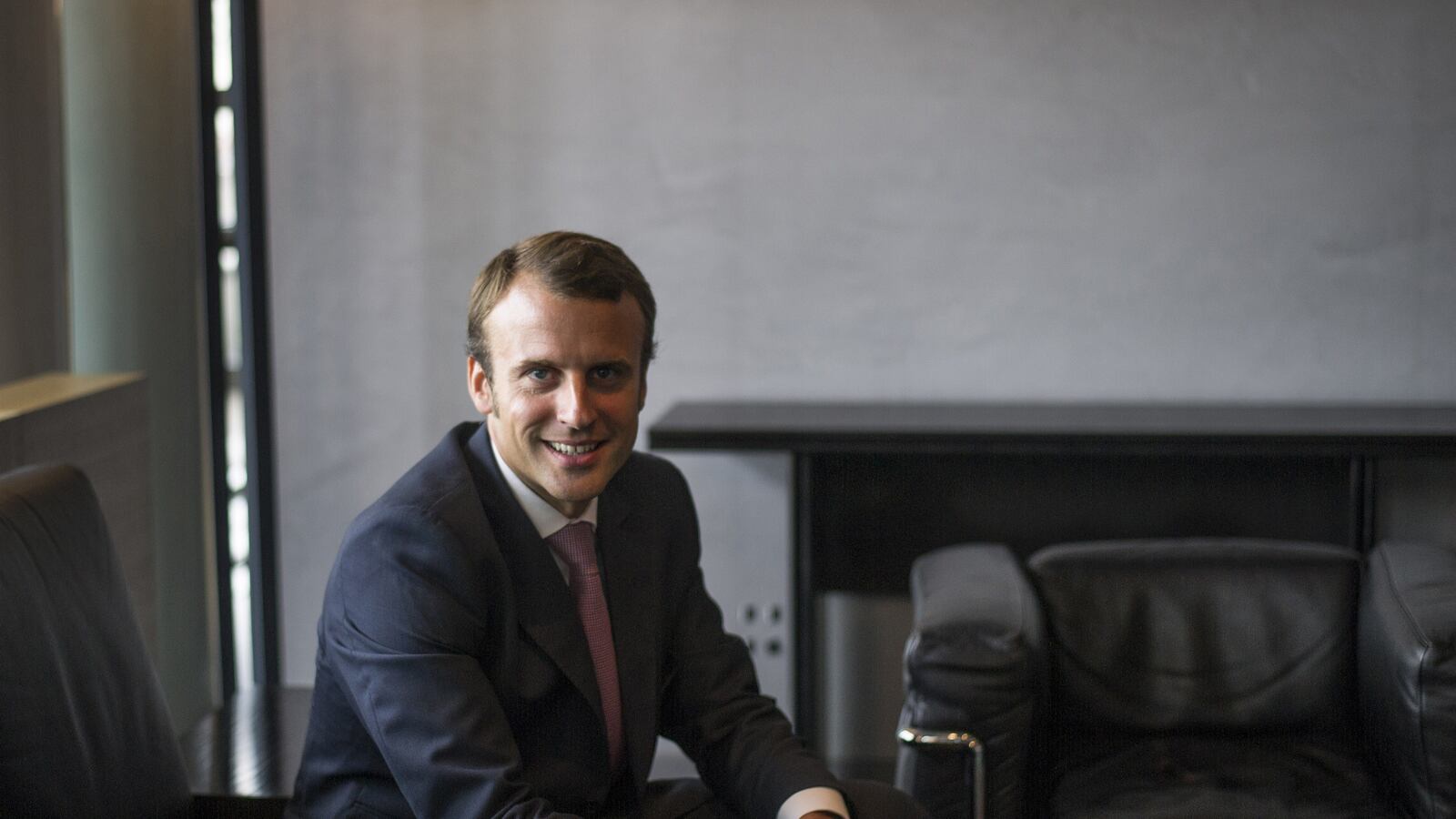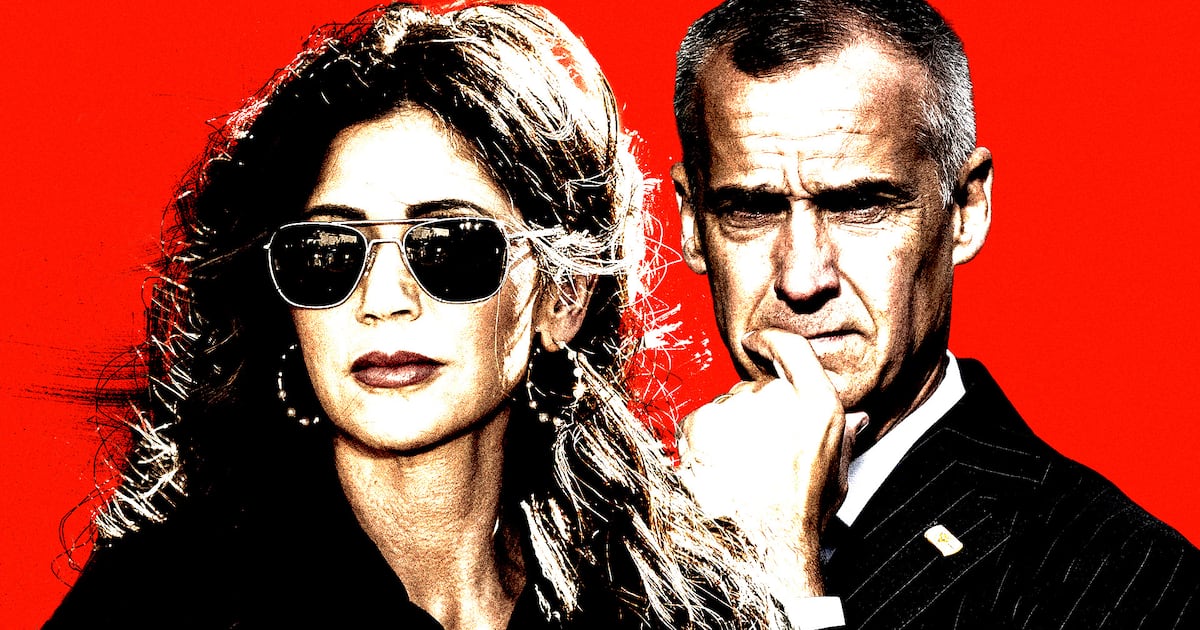PARIS — At 36, Emmanuel Macron, France's new Economy Minister, is remarkably young. He got rich on his wits. He is, by all accounts, brilliant; a dashing, urbane go-getter who exudes charm. A sharp intellectual. A prodigy. He is even a prize-winning classical pianist. The guy's a winner. And yet believe it or not, Macron's appointment this week to France's cabinet is seen as an audacious move for the chronically embattled Socialist President François Hollande.
Pundits agree the coming months are Hollande's last chance to get his first presidential term right if he is to have any chance at a second one in 2017. The French president's approval ratings are in the teens. And internal dissent on France's left wing, from dissident Socialists and miffed Greens, is at a fever pitch, hampering his administration's effectiveness at every turn.
Europe's second largest economy has stagnated stubbornly. Unemployment in France has risen almost without pause for years, continually setting records. Paris recently had to junk its initial fiscal and growth targets for 2014, just as the European Commission implored it to accelerate structural reforms, citing urgency.
Enter Macron. A never-elected social democrat and former investment banker, he served in Hollande's Elysée Palace for two years advising the president on economic and financial matters. A moderate relaying concerns to the president from the captains of industry, who had his ear, Macron is credited with supply-side reforms like Hollande's Responsibility Pact, which promises labor-cost cuts in exchange for hiring.
But Macron's surprise nomination as Economy Minister drew immediate flak from leftist critics, slamming a "derisive provocation" and a rightward shift. Plantu, Le Monde's front-page political cartoonist, drew Macron smoking a cigar, bow-tied and top-hatted, with Scrooge McDuck perched upon his shoulder.
The Jesuit-educated son of two doctors from Amiens, north of Paris, Macron joined the Socialist Party at 24, the year far-right rabble-rouser Jean-Marie Le Pen scored his shock appearance in the 2002 presidential election run-off. Macron excelled at France's elite schools, including the civil-servant powerhouse Ecole Nationale d'Administration. He has a postgraduate degree in philosophy and worked for three years under Paul Ricoeur, one of the greatest French philosophical minds of the 20th century. Le Monde once called his résumé "so impeccable that it's almost discouraging."
Precocious even in his private life, Macron does not have children of his own but, at 36, he is a grandfather. In 2007, he married a French teacher he first met when he was in 11th grade. Twenty years his senior, Brigitte Trogneux has grown children from a previous union.
That same year, Macron was recruited by the economist Jacques Attali for a bipartisan commission charged by President Nicolas Sarkozy with making proposals to "liberate French growth." Attali then reportedly introduced Macron to Hollande.
A former special advisor to Socialist President François Mitterrand, Attali is credited with making a young Hollande and Ségolène Royal, just out of school, his protégés in Mitterrand's Elysée Palace in 1981; the rest is history. (Place your bets. Attali is now tipping Macron for president in 20 years.)
But the line on Macron's glittering CV that really rankles critics is Rothschild Group. Nicknamed "the Mozart of Finance," Macron spent short but extremely lucrative years as an investment banker at Rothschild. His key role in shepherding Nestlé's $12-billion purchase of Pfizer's infant-nutrition unit is said to have set Macron up financially for years to come. Evidently invited to explain his stint on the dark side, he once told the left-leaning daily Libération, "The idea was also to shelter myself financially. I don't have luxurious tastes, or great needs, but my independence is worth a lot to me."
Still, a 30-something who knows his way around a cufflink is viewed with some suspicion by a swath of the French left. And the knowledge that Macron took a hefty pay cut to serve in the Elysée Palace seems to agitate critics more than it placates them. As does the fact Macron rebuffed approaches from France's right wing. He also declined to back one-time Socialist presidential favorite Dominique Strauss-Kahn, wagering instead on Hollande, an extreme long-shot, as early as 2008. (The financial daily Les Echos quipped the investment banker was "buying low.")
Of course, the moderate Macron isn't to credit — or blame — for all of Hollande's winning campaign shtick. He famously slammed Hollande's controversial proposal to tax high incomes at 75 percent, calling the plan "Cuba without the sunshine." And Macron must have shifted uncomfortably in his seat listening to Hollande — a social democrat at heart — send a campaign crowd into raptures in January 2012 with the rallying cry, "My veritable enemy... is the world of finance!"
The French president's temperament has long been likened to a formless custard dessert called Flanby. A pathological consensus-seeker, Hollande will suffer fools gladly in order to co-opt rival political sensibilities and keep his enemies close. But on the French left — riven by ideological splits from competing centuries — that job is akin to herding cats.
Last weekend, the cattiest of Hollande's ministers went a step too far, slamming France's economic policy, and was finally ousted. The firebrand dirigiste Arnaud Montebourg — the very same credited with coining the Flanby jibe, although he denies it – had used his cabinet posts for two years as industry and later economy minister as a soapbox to great effect. A lawyer by training who stumped for what he called "de-globalization," the hammy Montebourg fancied himself a sort of Atticus Finch of the factory worker, threatening to resign as industry minister in 2012 when one struggling steel-working site wasn't nationalized (after he had told the private-sector investor to get lost).
Needless to say, Macron is a more business-friendly choice for Economy Minister. Indeed, after his sudden promotion, apparently coming as a surprise even to him, the new government spent Thursday putting out fires after the publication of an interview Macron gave before he knew he would be named; in the weekly Le Point, he appeared to contest France's 35-hour workweek — sacrosanct to some, an aberration to others, and not on this government's agenda.
Yves de Kerdrel, an editorialist for the right-leaning daily Le Figaro, wrote this week, "If the business community is welcoming Macron's nomination with immense satisfaction it is because it will finally be listened to, no longer regarded as an association of slave-drivers. It will finally be considered a partner and not an adversary." Kerdrel, who calls Macron "a close friend," deemed the young moderate's promotion "François Hollande's first intelligent idea" since he won election in May 2012.
Hollande should now have a social-democrat tandem he can trust to push through economic reforms with Macron alongside Finance Minister Michel Sapin, who was Hollande's bunkmate during their military service in 1977. And the clock is ticking.
Taking office Wednesday, Macron told an assembled crowd, "I come all wreathed in a reputation the press has made for me. Judge me on my actions. That's all that counts." Not to worry, he can bank on it.






